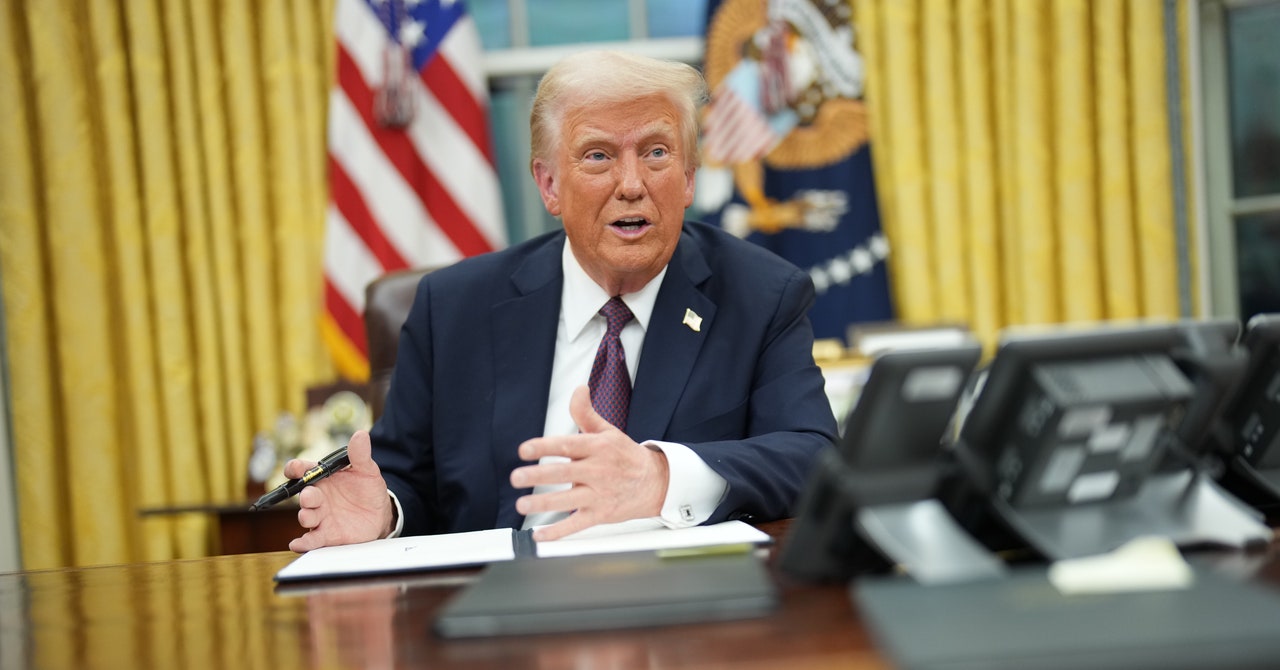In the summer of 2020, 15 recognized leaders in US public health gathered to author an article in The Lancetâone of the worldâs most eminent medical journalsâdecrying Donald Trumpâs intention to withdraw the US from the World Health Organization, a decision that was later reversed by President Biden before it took effect.
Nearly five years later, one of the opening salvos of Trumpâs second term has been to again initiate the process of withdrawing the US from the WHO. The move is already drawing both controversy and the threat of legal challenges.
According to a 1948 joint resolution passed by both houses of Congress, any such withdrawal requires the US to provide the WHO with one yearâs notice, but it appears that Trumpâs intentions are to withdraw immediately and do so without seeking congressional approval.
âThe executive order announces the immediate withdrawal from WHO, and heâs not seeking congressional authorization, and heâs also not giving the required one yearâs notice,â says Lawrence Gostin, a professor in public health law at Georgetown University Law Center in Washington, DC, and one of the coauthors of the 2020 Lancet article. âIn my view, this is reckless and itâs lawless, and it needs to be challenged in court.â
Trump has a long history of criticizing the WHO, previously accusing the organization of being âcorrupt,â ripping off America, and âseverely mismanaging and covering upâ the spread of Covid-19. The US has historically been one of the WHOâs largest funders, with some estimates suggesting that it provides a fifth of the organizationâs entire budget. Between 2022 and 2023, the US provided the WHO with nearly $1.3 billion.
However, Gostin and others are particularly concerned about the impacts of a US withdrawal on the countryâs ability to manage the ongoing threat of infectious diseases. While the WHO has a far-reaching remit, ranging from advice on essential medicines to public policy recommendations on everything from tobacco and drug use to road safety, it is arguably most impactful when it comes to the surveillance of potentially problematic new diseases, such as bird flu, and coordinating an international response.
âWithdrawing from WHO makes us more alone, more vulnerable, and more fragile in the world,â says Gostin. âYou canât shut down a border against a pathogen. We need WHO to be on the ground to put out fires before they get to the United States. And we also need WHOâs vast network to provide us with the information about mutations and viruses that we need to develop life-saving vaccines and medical treatments.â
According to Sten Vermund, chief medical officer of the Global Virus Network and another coauthor of The Lancet article, what happens next depends on the reactions of other countries and nongovernment organizations such as the Bill and Melinda Gates Foundation, the World Bank, and Gavi, the Vaccine Alliance, which all provide the WHO with significant funding. After Trump cut US contributions to the WHO to $680 million in 2020â21, Germany responded by quadrupling its contributions to more than $1 billion. The Danish government also agreed to double its contributions, placing a strong emphasis on improving sexual and reproductive health and tackling the rise of non-communicable diseases.

